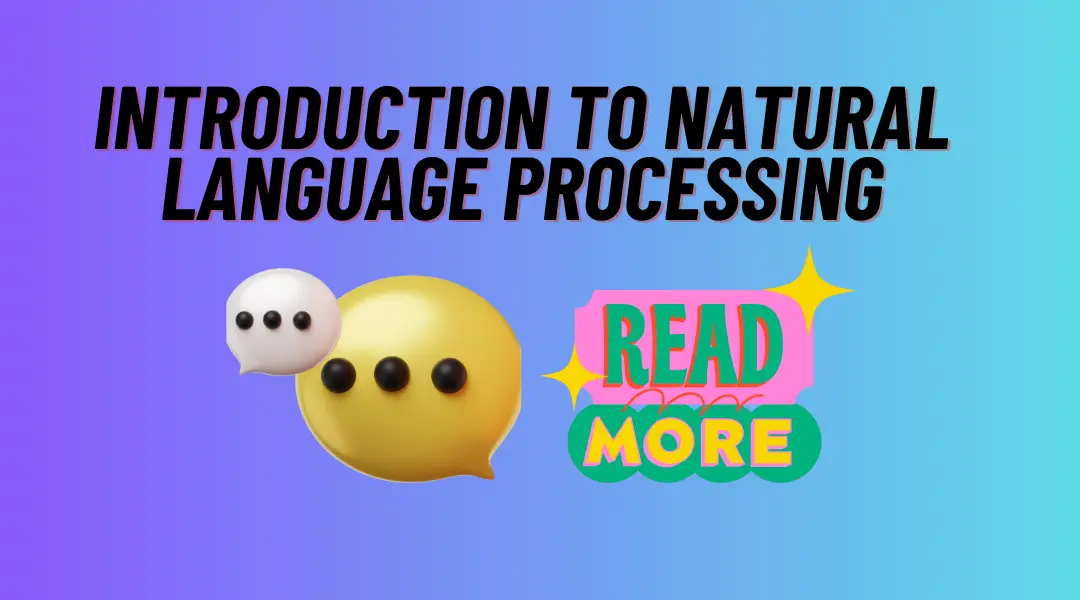Welcome to the first blog on Natural Language Processing (NLP). In this blog post, we will take a closer look at what NLP is and its applications. As we dive into the topic, we will explore the advancements in NLP, particularly the rise of large language models like ChatGPT.
What is Natural Language Processing?
Natural Language Processing is a branch of artificial intelligence that focuses on the interaction between computers and human language. It involves teaching computers to understand, interpret, and generate human language in a way that is both meaningful and contextually relevant.
NLP enables computers to process and analyze vast amounts of textual data, allowing them to extract valuable insights, respond to queries, and even carry out conversations. By bridging the gap between humans and machines, NLP has revolutionized the way we interact with technology.
Applications of Natural Language Processing
NLP has found its way into multiple applications across various industries. Let’s explore some of the applications of natural language processing:
1. Sentiment Analysis
Sentiment analysis involves determining the sentiment expressed in a piece of text. NLP algorithms can analyze social media posts, customer reviews, and other forms of text to check whether the sentiment is positive, negative, or neutral. This information is invaluable for businesses or companies to understand customer feedback, improve products and services, and make informed decisions.
2. Machine Translation
NLP has played a crucial role in breaking down language barriers by enabling machine translation. Nowadays, many specific algorithms can now translate text from one language to another with good accuracy. This has facilitated global communication and also improved accessibility to information.
3. Chatbots
One of the most exciting applications of NLP is the development of chatbots. They can understand and respond to human queries, providing personalized support. With the advent of large language models like ChatGPT, chatbots have become more capable of understanding complex queries. Still, work is going on in the field of chatbots as the use of ChatGPT has increased manifold. Now, Google has also launched its chatbot, Gemini in competition with OpenAI.
The Rise of Large Language Models
Large language models like ChatGPT have gained significant attention in recent years. These models are trained on massive amounts of data, allowing them to generate human-like text and carry out coherent conversations. ChatGPT, developed by OpenAI, has demonstrated impressive capabilities in understanding and responding to user queries.
While large language models like ChatGPT have shown great potential, they also come with challenges. Ensuring ethical use, addressing biases, and maintaining privacy are some of the concerns that need to be carefully addressed as these models continue to evolve. We have discussed some of the potential concerns of an increase in LLMs in our blog.
The Future of Natural Language Processing
As we look ahead to 2024 and beyond, the future of NLP is bright. Advancements in NLP will continue to shape the way we communicate and interact with technology. Here are some exciting possibilities:
1. Enhanced Language Understanding
NLP systems will become even better at understanding the subtleties and nuances of human language. They will be able to comprehend context, detect sarcasm, and interpret emotions more accurately, leading to more meaningful and engaging interactions.
2. Multilingual and Multimodal Capabilities
NLP models will become more proficient in handling multiple languages and different modes of communication. They will seamlessly process text, speech, images, and videos, enabling more comprehensive communication.
3. Ethical and Responsible AI
As NLP continues to advance, it is crucial to ensure the ethical and responsible use of these technologies. Efforts will be made to address biases, promote transparency, and protect user privacy. The development of guidelines and regulations will play a vital role in shaping the responsible use of NLP.
Conclusion
In conclusion, Natural Language Processing has transformed the way we interact with technology, and its impact will only continue to grow. From sentiment analysis to chatbots, NLP has opened up new possibilities for communication and understanding. As we move forward, it is essential to embrace these advancements ethically and use AI and NLP for productive use.
You can explore more about Natural language processing, as we’ll upload complete blogs explaining NLP from key terms to ChatBot development. Read our blogs on other different fields like website development and computer vision.

